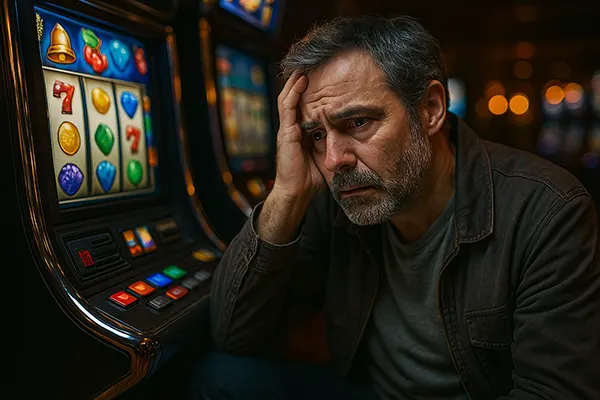
Psychology of Big Wins: How a Jackpot Changes the Player — Positively or Dangerously?
Winning a massive jackpot in a casino is often portrayed as a dream come true. The thrilling sound of spinning reels aligning in favour, the flashing “jackpot” lights, and the sudden spike of adrenaline all contribute to a moment of life-altering significance. But while the initial wave of excitement is undeniable, the psychological aftermath can range from positive transformation to dangerous dependency. This article explores what happens in the mind of a gambler who hits it big, backed by insights relevant as of February 2025.
Behavioural Shifts After a Big Win
When a player secures a large casino win, their immediate emotional response is often euphoria. This state of heightened pleasure releases a surge of dopamine, a neurotransmitter associated with reward and motivation. According to studies by the British Psychological Society in 2024, such experiences can temporarily alter a person’s decision-making capabilities, fostering riskier behaviour even outside the gambling context. The belief in personal luck or “winning streaks” often sets in, distorting one’s perception of chance.
However, this elation is not sustainable. Once the high fades, some individuals experience anxiety or even paranoia — a fear of losing their newfound fortune. It’s not uncommon for winners to become overly cautious, struggling to trust others or themselves with financial decisions. This tension can lead to isolation or compulsive behaviour as they attempt to preserve their win or replicate the excitement.
More critically, some winners begin chasing the original emotional rush. Gambling, which was once recreational, may transform into a compulsive habit as the person seeks to recreate the moment that brought them so much joy. This can mark the beginning of an addiction cycle, especially if emotional regulation mechanisms were weak prior to the win.
The Thin Line Between Joy and Dependency
The transition from joyful winner to troubled gambler can be insidious. Research from the Gambling Commission UK indicates that approximately 14% of major jackpot winners in the last five years developed some form of gambling disorder within 12 months. These disorders range from frequent relapses to complete financial ruin due to unchecked compulsion.
Psychologically, the win serves as a reinforcement that fuels cognitive biases — such as illusion of control and gambler’s fallacy. People begin to believe that success can be predicted or repeated through patterns, leading them to miscalculate probabilities and continue playing despite losses. Over time, they may neglect personal responsibilities and relationships in pursuit of another jackpot.
Moreover, dependency doesn’t always manifest in continuous play. For some, it evolves into unhealthy emotional attachment — a deep-seated belief that their worth or future depends on repeating the win. This mindset can foster depression, anxiety, or even suicidal ideation if losses mount and reality conflicts with their expectations.
Psychologists’ Advice on Managing Emotions
To mitigate the psychological risks tied to big wins, mental health professionals recommend building emotional resilience before engaging in high-stakes gambling. The National Problem Gambling Clinic in London emphasises pre-commitment strategies — such as setting strict time and money limits — as effective methods to prevent emotional overinvestment.
Another widely recommended approach is mindfulness training. Regularly practising awareness of one’s thoughts and emotions without judgement helps players maintain clarity when they win or lose. By staying grounded, they’re less likely to be swept away by unrealistic expectations or pressure from their social environment.
Furthermore, psychologists advise winners to seek financial planning assistance immediately. Collaboration with a neutral, certified advisor can eliminate impulsive decisions and provide a roadmap that ensures long-term stability. Simultaneously, speaking with a licensed therapist can help unpack any sudden identity shifts or existential confusion triggered by the win.
Emotional Recovery Plans for Big Winners
Structured emotional recovery plans are gaining popularity among therapists who specialise in gambling psychology. These programmes include routine mental health check-ins, group support sessions with other winners, and personal development goals unrelated to gambling. Their purpose is to refocus the winner’s identity and priorities.
According to a 2025 review by the European Association for the Study of Gambling, individuals who follow recovery programmes report 67% higher levels of long-term satisfaction and stability compared to those who do not. Crucially, these winners also display reduced risk of relapse and are more likely to invest their money in meaningful ventures or charitable activities.
Setting achievable goals is another psychological tool that can redirect a person’s mindset from the fleeting thrill of winning to sustainable self-growth. Whether it’s pursuing a new hobby, starting a business, or contributing to community projects, these activities provide lasting fulfilment without the emotional volatility of gambling.

When Winning Becomes a Curse
Although it might seem counterintuitive, winning a large sum of money can sometimes precipitate financial and emotional disaster. Many winners, particularly those with pre-existing vulnerabilities such as low financial literacy or impulsivity, end up worse off than before. Studies from the University of Cambridge suggest that 38% of jackpot winners in the UK reported lower quality of life within two years post-win.
The sudden wealth can expose players to manipulation or scams, often from within their own social circles. This breach of trust damages interpersonal relationships and can lead to social withdrawal or heightened suspicion of others. It’s a phenomenon psychologists call “wealth-induced alienation.”
In extreme cases, the win can act as a catalyst for the unraveling of a person’s identity. With old routines and motivations disrupted, winners sometimes feel unanchored and directionless. This psychological state increases susceptibility to depression and substance abuse — a tragic trajectory that many mental health experts now recognise as a hidden crisis among unprepared winners.
The Importance of Psychological Support Systems
To prevent these adverse outcomes, mental health experts call for the integration of psychological counselling as part of standard casino protocols for big winners. While most casinos offer financial advice or payout guidance, few provide emotional assistance during the critical post-win phase. This is a gap that must be addressed in 2025 and beyond.
Responsible gambling organisations advocate for proactive intervention, including follow-up welfare checks and access to psychological hotlines. In the UK, platforms such as GamCare and BeGambleAware have launched specific services tailored to winners who are at risk of developing post-win disorders or struggling with social adjustment.
Public awareness is also key. Encouraging open dialogue about the challenges of sudden wealth and portraying realistic outcomes in media representations of jackpots can help shift cultural narratives. Recognising the psychological complexity behind “hitting the jackpot” may be the first step toward protecting vulnerable players from turning a win into a wound.
